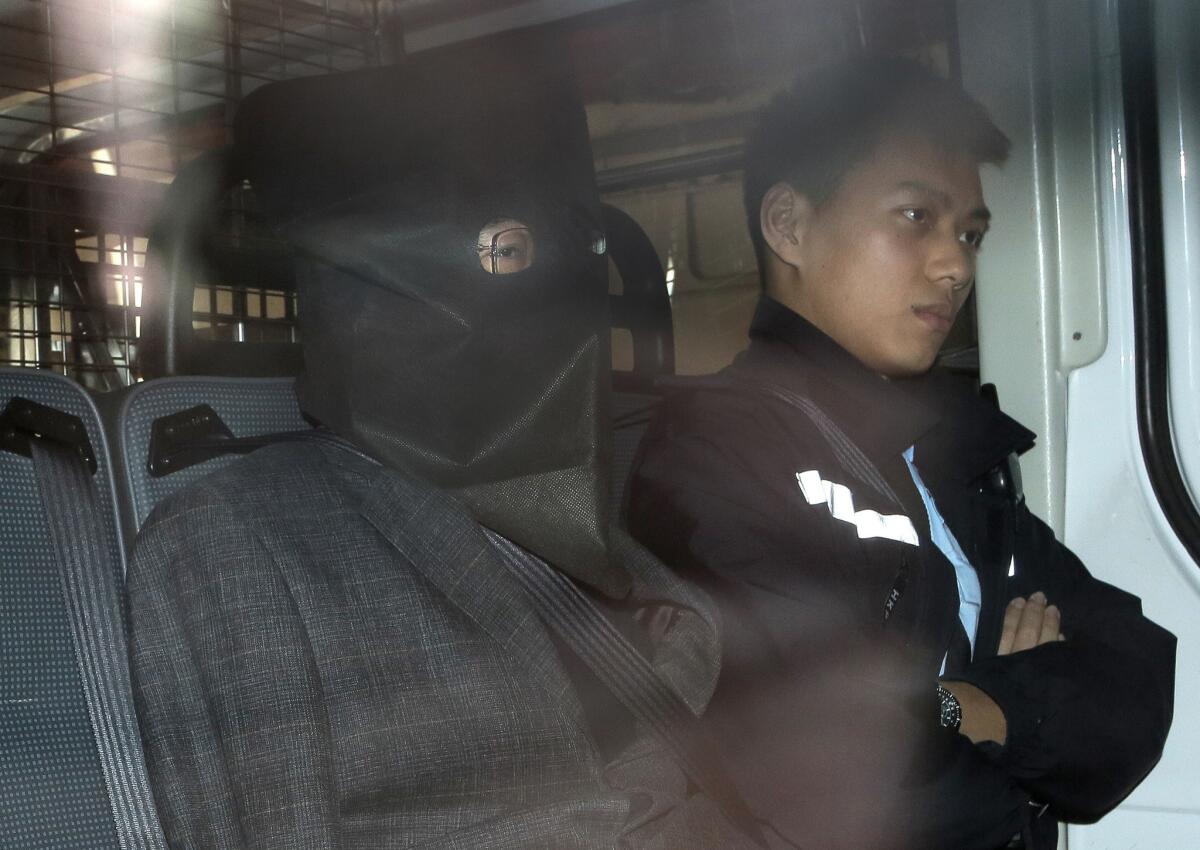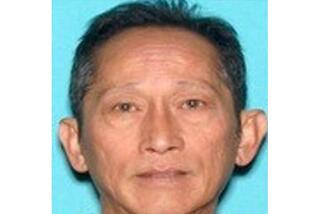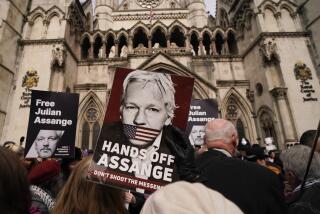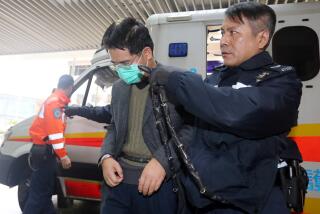Suspect in Arcadia slayings agrees to return to U.S. after Hong Kong hearing

Chinese fugitive Shi Deyun, his face hidden under a hood, in police custody following his arrest after arriving in Hong Kong on a flight from Los Angeles on Jan. 25, 2016.
A mainland Chinese man wanted in connection with the killing of his two teenage nephews in Arcadia last month formally agreed Thursday to be extradited back to the United States after a hearing in a Hong Kong magistrates’ court.
Acting without legal counsel, Shi Deyun, 44, signed a document stating that he agreed to be surrendered to U.S. authorities and that he understood the consequences of his decision. He had previously dismissed the services of a lawyer, saying he wished to represent himself, and has been held without bail.
Magistrate Jason Wan Siu-ming, conducting the hearing in English, carefully took Shi through the consent document, asking after every section, “Do you understand?” Shi, a Mandarin speaker, responded “yes” though an interpreter. By signing the committal order, Shi agreed to be held awaiting his return to America, and also not to oppose a disposal order allowing U.S. authorities to return with any of his properties that have been seized, including his Chinese passport.
See more of our top stories on Facebook >>
The consent order cannot come into effect until signed by Hong Kong Chief Executive Leung Chun-ying. At the request of Anthea Li, the Hong Kong government’s counsel in the extradition case, the judge explained to Shi that under a section of the territory’s laws regarding fugitives, he has the right to apply for habeus corpus, which would mean he could not be removed or extradited.
“Not removed to where?” asked Shi.
“To the U.S.A.,” said Wan. He explained to Shi that habeus corpus was a legal term meaning that you apply for the protection of the person, and it meant that a person objects to his surrender to the other government. But he cautioned Shi that the procedure was “a bit complicated” and should he decide to go that route, “my advice is to seek the advice of a lawyer.”
Shi, dressed in a grey wool jacket and a dark shirt, appeared alert throughout the hearing. He was given documents to review and allowed to leave the courtroom to study them with the help of the court interpreter. Although he walked with no assistance and was not handcuffed, he moved slowly with his gaze downward. His responses were soft but audible.
When asked if he wanted the U.S. charges against him to be read out, Shi replied “no.”
Li, the local government’s lawyer, told reporters outside the court that the U.S. had informed Hong Kong that the issue of the death penalty would not arise, and the maximum penalty possible would be a life sentence. Hong Kong does not impose the death penalty and will not return fugitives to a jurisdiction where they might face capital punishment. Li also said the extradition documents were not considered public information in Hong Kong.
Investigators with the Los Angeles County Sheriff’s Department have said that on late Jan. 21, or early the next day, Shi drove to his brother-in-law’s town house in the 400 block of Fairview Avenue in Arcadia, after assaulting his estranged wife in La Cañada Flintridge.
Shi’s two nephews, ages 15 and 16, were found with extreme injuries at the Fairview residence on Jan. 22 by their mother, investigators say. The sheriff’s department pronounced both teenagers dead at the scene from blunt-force blows to their torsos.
Shi arrived in Hong Kong on Jan. 23 on a flight from Los Angeles and was immediately taken into custody on a warrant issued on the basis of a provisional arrest document from U.S. authorities.
Li told the court that Hong Kong authorities had received a full surrender request from their U.S. counterparts, and needed to execute the extradition in accordance with a 1997 treaty.
When he first appeared in court late last month, Shi denied being a fugitive, saying that he had flown to Hong Kong en route to a city in mainland China where he owns businesses.
Shi apparently moved to Southern California in 2014 with his wife and two children. Recently, his wife told him that she wanted a divorce.
At a hearing Feb. 1, Shi had told the judge he had health issues and was suffering from delusions.
“I feel many people are trying to kill me,” Shi said then. “I’m very confused… I don’t know what has happened to me over the past few days.”
On the judge’s order, Shi was taken to a hospital for a medical examination. He returned to the court that afternoon. He spoke for himself for the remainder of the proceedings, after dismissing the defense lawyer that the judge had arranged to represent him.
At that time, Shi appeared dejected and listless. He often gave monosyllabic answers in a hoarse voice and spoke very softly, with even his court-appointed interpreter at times straining to make out his responses.
Moriarty is a special correspondent.
MORE WORLD NEWS
Fire, riot break out at Mexican prison
North Korea orders military takeover of inter-Korean factories
Five years on, Tahrir Square activists look back at Egypt’s revolution: ‘Maybe we were naive’
More to Read
Start your day right
Sign up for Essential California for news, features and recommendations from the L.A. Times and beyond in your inbox six days a week.
You may occasionally receive promotional content from the Los Angeles Times.






